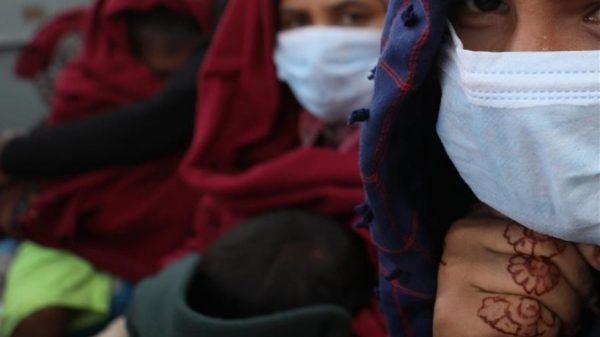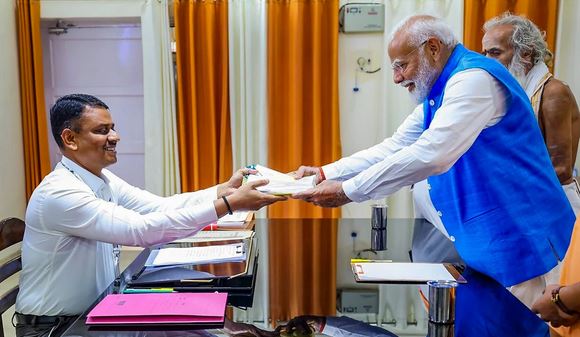Omicron cases increasing, Delta still spreading

Shawdesh desk:
The number of Omicron variant of coronavirus infection cases has been increasing day by day in the country while Delta and other variants of the virus are still causing infections.
However, health experts have blamed people’s ignorance about maintaining health guidelines and public gatherings for increasing the recent hike in the Covid-19 cases in the country.
“The number of coronavirus infection cases has been increasing for the last few days as people are showing ignorance about maintaining health rules, including wearing mask, attending various social and family programmes and other public gatherings recently,” Prof Dr Tahmina Shirin, director of Institute of Epidemiology, Disease Control and Research (IEDCR), told the Daily Sun.
She said some Omicron infection cases have already been detected in the country while the genome sequencing task has been going on as routine work to detect the variant of the infection cases.
“We can’t yet confirm community transmission of the Omicron variant in the country. We got influence of Delta variant of the coronavirus till mid-December last year in Bangladesh. We can confirm the current Omicron situation in the country at the end of this month,” the IEDCR chief added.
Talking to the Daily Sun, Principal Scientific Officer of the IEDCR Dr ASM Alamgir said the Delta variant of the coronavirus is still influencing in the rising coronavirus infection cases in the country.
“It will take more than two to three weeks to spread the Omicron cases in the country on large scale. We have to ensure our health guidelines immediately and take the coronavirus vaccine. Otherwise, the Omicron variant will spread in the entire country,” he added.
Addressing a health bulletin of the Directorate General of Health Services (DGHS), its spokesperson Prof Dr Nazmul Islam on Sunday said, “Most of the patients who have been detected with the Omicron variant are doing well while some of them also returned home after recovery.”
He said a total of 6,300 people were infected with the coronavirus in the country in the last epidemiological week till January 8 which is 3,376 or 115 percent higher than the previous week.
“The number of Covid-19 patients has increased in the last week as 557 infection cases were reported and the daily infection rate remained below 3 percent on January 2 while the number of infection has risen to 1,116 and the infection rate also neared 6 percent on January 8,” Dr Nazmul Islam said. The DGHS director emphasised on the importance of raising public awareness, using masks and following health guidelines to keep the upward trend of coronavirus infection under control.
He said amid further rise in coronavirus infection cases across the world, the government has strengthened screening system in ports of entry of the country as the authority is checking health condition and coronavirus test report strongly.
According to GISAID, the global database for genomic data on the coronavirus, nine more cases of the Omicron variant of Covid-19 have been detected in Bangladesh, taking the total tally to 30 till Monday.
Earlier, one Omicron case was detected in the country on January 8 and 10 cases were detected on January 6. On December 9, the country’s first two Omicron cases were reported.
The DGHS said nearly2,231 infection cases (8.53percent infection rate)were detected in Bangladesh in the last 24 hours till Monday morning.
On November 26, 2021, the WHO named the B.1.1.529 Omicron and classified it as a Variant of Concern.
On December 11, Bangladesh reported its first two cases of the Omicron variant.
Amid the rising coronavirus infection cases in the country, the National Technical Advisory Committee (NTAC) on Covid-19 on January 7 has issued a set of recommendations, including strict implementation of health guidelines, and recommended imposing restrictions on public gatherings.
The NTAC also said all students will have to be brought under vaccination and strengthening of screening, quarantine and isolation in all points of entry, preparing hospital beds and adequate oxygen supply are necessary for facing the situation.
Talking to reporters, Prof Dr ABM Khurshid Alam, director general of the DGHS, recently said the country may see a major spike in coronavirus infection transmission in March-April as the Omicron variant is now leading the pandemic across the world.
“The coronavirus infection may increase further in March-April and we are working to increase the capacity of hospitals across the country accordingly. We are trying to make the hospitals ready by January or February,” he said.























Leave a Reply